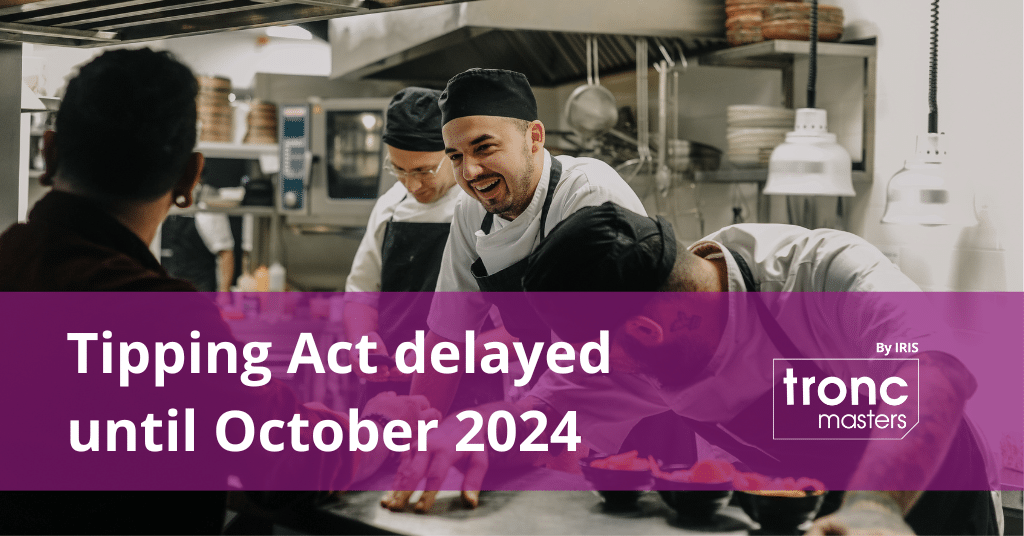
Hospitality workers across the country have been eagerly anticipating The Employment (Allocation of Tips) Act 2023, as it’s expected the changes will protect the tips of more than 2 million people.
The Act makes it unlawful for businesses to hold back service charges from their employees, ensuring staff receive all of the tips they have earned.
While the Department for Business confirmed the legislation is still due to be passed in Parliament, the implementation date has now been delayed to 1st October 2024, rather than the expected 1st July due date.
Code of Practice and Consultation Response
On Monday 22nd April 2024 the Department for Business and Trade released an updated draft Code of Practice on the fair and transparent distribution of tips that delayed the July implementation.
This updated Code of Practice can be used in employment tribunals as it has statutory and legal effect.
Business and Trade Minister Kevin Hollinrake said: “Whether you are cutting hair or pulling a pint, this government’s legislation will protect the tips of workers and give consumers confidence that when they leave a tip, it goes to the hardworking members of staff. The secondary legislation reinforces our commitment to legally protecting our low-paid workers and ensuring a fair day’s pay for a fair day’s work.”
Alongside the updated Code of Practice, the Government also published a response to the public consultation, setting out the feedback received, their response and next steps.
There were not many responses to the consultation in the context of the number of businesses affected, and disappointingly there are few changes to the legislation where there is a lack of clarity or impracticality.
You can read what is available in the Consultation response here.
What now?
The Code of Practice includes a few more points regarding data that can be used to design tip allocation methods but has not included examples.
Instead, it was stated that further non-statutory guidance will be published in due course to accompany this Code of Practice to help employers and workers interpret the legislation.
You can read the Code of Practice here.
For many, the next step is to wait for more guidance, but we strongly suggest auditing your processes to ensure you are in the best possible position for 1st October.
